ETICS Annual Research Schools
École Thématique sur les Incertitudes en Calcul Scientifique
Research School on Uncertainty in Scientific Computing
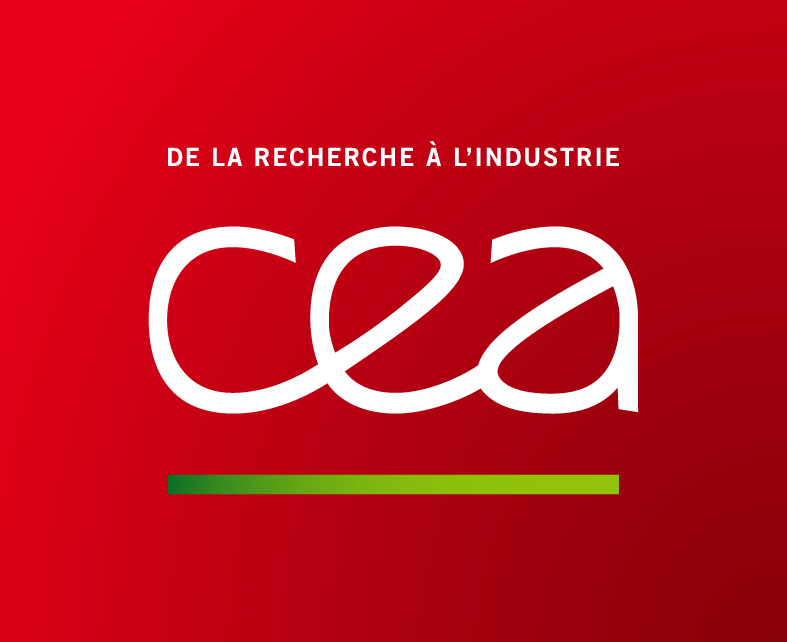

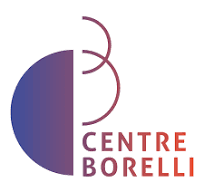
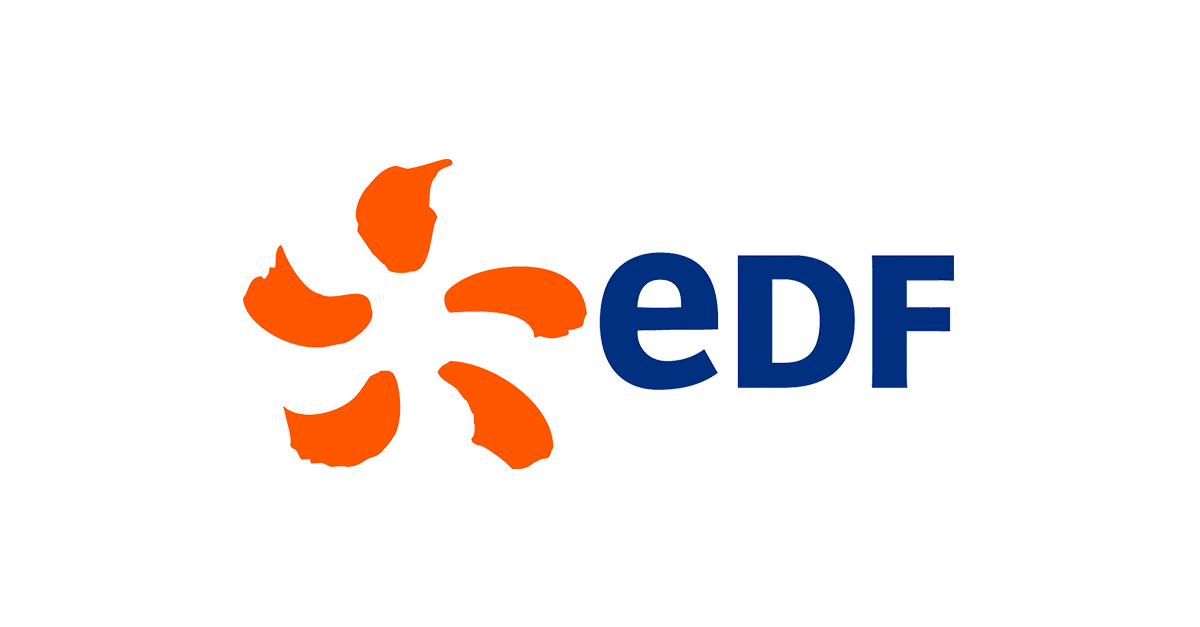
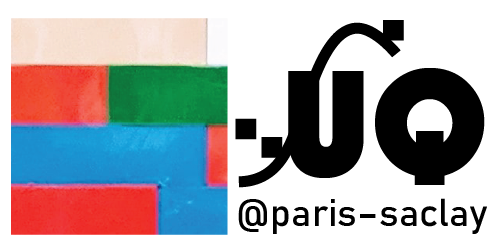
Organized by CEA/DAM, EDF R&D and ENS Paris Saclay (Centre Borelli and LRC MESO), under the collaborative actions of the GIS LARTISSTE and with the scientific labelling of the RT-UQ
Scientific committee: Sophie Ancelet (ASNR), Claire Cannamela (CEA/DAM), Sébastien Da Veiga (ENSAI-CREST), Bertrand Iooss (EDF R&D), Merlin Keller (EDF R&D), Amandine Marrel (CEA/DES), Mathilde Mougeot (ENSIIE & ENS Paris-Saclay), Guillaume Perrin (Université Gustave Eiffel), Gael Poette (CEA/DAM), Delphine Sinoquet (IFPEN)
The goal of this school is to develop the skills of researchers and engineers in the domain of uncertainty management of computer codes and machine learning techniques in support to engineering studies. Some of the lectures are followed by practical computer works. Collaborative works, round tables and poster sessions allow to promote exchanges between participants. The prerequisites to possess are the mathematical bases of the uncertainty quantification science.
ETICS2026
Dates: 2026, September 27 - October, 2
Location: Amboise, France - VVF Amboise Les Châteaux de la Loire
Warning: The language of this ETICS edition will be in French - Les cours de cette édition d'ETICS seront dispensés en français
Organizers : Bertrand Iooss (EDF R&D) and Claire Cannamela (CEA/DAM)
Lecturers:
- Prof. Marianne Clausel (Université de Lorraine, France) on causality and explainable artificial intelligence
- Prof. Jérôme Darbon (Brown University, USA) on adversarial optimal control in high dimension and multiobjective optimization
- Prof. Olivier Roustant (INSA Toulouse, France) on physics-informed Gaussian process
- TBA
- TBA
Registration
Registration fees (935€, taxes included, 850€ without taxe: to be confirmed) include accommodation and meals
Abstracts
- TBA
ETICS2025
Dates: 2025, October, 5-10
Location: Evian les Bains, France - VVF Evian les bains
Warning: The language of this ETICS edition will be in French - Les cours de cette édition d'ETICS seront dispensés en français
Organizers : Bertrand Iooss (EDF R&D) and Claire Cannamela (CEA/DAM)
Lecturers:
- Prof. Erwan Scornet (Sorbonne Université): Learning with missing values: from estimation to prediction - slides - TP - TP solution
- Dr. Olivier Zahm (INRIA, Laboratoire Jean Kuntzmann, France): Poincaré inequalities for dimension reduction and efficient sampling - Part 1 - Part 2
- Sébastien Da Veiga (ENSAI) : Comparer des distributions: un florilège de présentations ETICS, et exemples de thématiques actuelles - etics_2025_daveiga.pdf
- Merlin Keller (EDF R&D) : Une thèse née à Barcelonnette (ETICS #1) : OUQ sur une mesure de risque en simulation numérique - etics2025_keller.pdf
- Guillaume Perrin (Université Gustave Eiffel) : Mieux comprendre pour mieux mesurer : défis et avancées en calibration de capteurs de pollution en environnement ouvert - etics2025_perrin.pdf
- Gaël Poette (CEA/DAM) : ETICS#1: où j'ai compris des trucs sur l'analyse de sensibilité et sur le fait que je ne ferai pas carrière dans la chanson - etics2025_poette.pdf
- Gwenaël Salin (CEA/DAM) : Apport de la géométrie aux statistiques de formes complexes: l'exemple de déformations par diffeomorphismes - etics2025_salin.pdf
- First year:
- Lorenzo Calzolari (INRIA): Space-filling designs in a RKHS - etics25_calzolari.pdf
- Paul Castéras (CEA): Méthode élastique pour la calibration bayésienne à sortie fonctionnelle - etics25_casteras.pdf
- Lucas Monteiro (ONERA): Reliability-based Shapley effects estimation with normalizing flows - etics25_monteiro.pdf
- Antoine Schoonaert (EDF R&D): The Csiszar Index and Variable Ranking - etics25_schoonaert.pdf
- Second year:
- Louis Allain (Safran Tech): Scalable and adaptive prediction bands with kernel sum-of-squares - etics25_allain.pdf
- Louison Bocquet-Nouaille (ONERA): Control variates for variance reduction in ratio of means estimators: application to the extreme value index - etics25_bocquet.pdf
- Haythem Boucharif (ONERA): Importance sampling for Sobol’ indices estimation - etics25_boucharif.pdf
- Elton Donfack-Siewe (Airbus): Efficient Estimation of A-basis and B-basis Values under Epistemic Uncertainty Using Importance Sampling and Control Variates - etics25_donfack.pdf
- Florian Gossard (Université Toulouse): Kriging-based prediction of probability measures - Application in numerical simulation for nuclear safety studies - etics25_gossard.pdf
- Nassouradine Mahamat Hamdan (CEA): Prediction of physical fields under linear constraints - etics25_hamdan.pdf
- Marie Temple-Boyer (EDF R&D) : Categorization of risk measures for reliability-oriented decision-making - etics25_temple.pdf
- Mouad Yachouti (Ecole Polytechnique): History-aware approaches for time-series analysis - etics25_yachouti.pdf
- Third year:
- Raphaël Carpintero Perez (Safran Tech) : A reproducible comparative study of categorical kernels for Gaussian process regression, with new clustering-based nested kernels - etics25_carpintero.pdf
- Antoine Faul (University of Bern): Easy conditioning far beyond Gaussian - etics25_faul.pdf
Registration
Registration fees (935€, taxes included, 850€ without taxe: to be confirmed) include accommodation and meals
Registration is closed because the maximal number of participants has been reached. - Contact Bertrand Iooss to be on the waiting list
Abstracts
- Prof. Erwan Scornet (Sorbonne Université): Learning with missing values: from estimation to prediction - Dans cette présentation, nous mettrons en évidence que le choix des méthodes de gestion des données manquantes dépend étroitement de l’objectif poursuivi : qu’il s’agisse d’estimer au mieux des paramètres, de reconstituer les données manquantes ou encore de prédire un outcome en présence de covariables incomplètes. Nous aborderons ensuite des résultats récents portant sur les mécanismes générateurs de données manquantes, ainsi que sur la recherche d’une méthode d’imputation idéale.
- Dr. Olivier Zahm (INRIA, Laboratoire Jean Kuntzmann, France): Poincaré inequalities for dimension reduction and efficient sampling - Poincaré inequalities are fundamental tools in the analysis of many uncertainty quantification algorithms. The first part of this lecture explores their role in gradient-based dimension reduction techniques for function approximation problems. We demonstrate how Poincaré inequalities enable the development of an efficient majorize-then-optimize strategy to control the approximation error introduced by the dimension reduction step. Extensions to nonlinear dimension reduction and Bayesian inference are also discussed. The second part of the lecture focuses on sampling algorithms, particularly the analysis of Markov Chain Monte Carlo (MCMC) methods, where Poincaré inequalities play a central role. We introduce a Riemannian version of the Poincaré inequality, which offers the potential to significantly improve convergence rates. By computing the optimal Riemannian metric, we design more efficient sampling schemes that facilitate rapid exploration across multiple modes and tails of the target distribution.
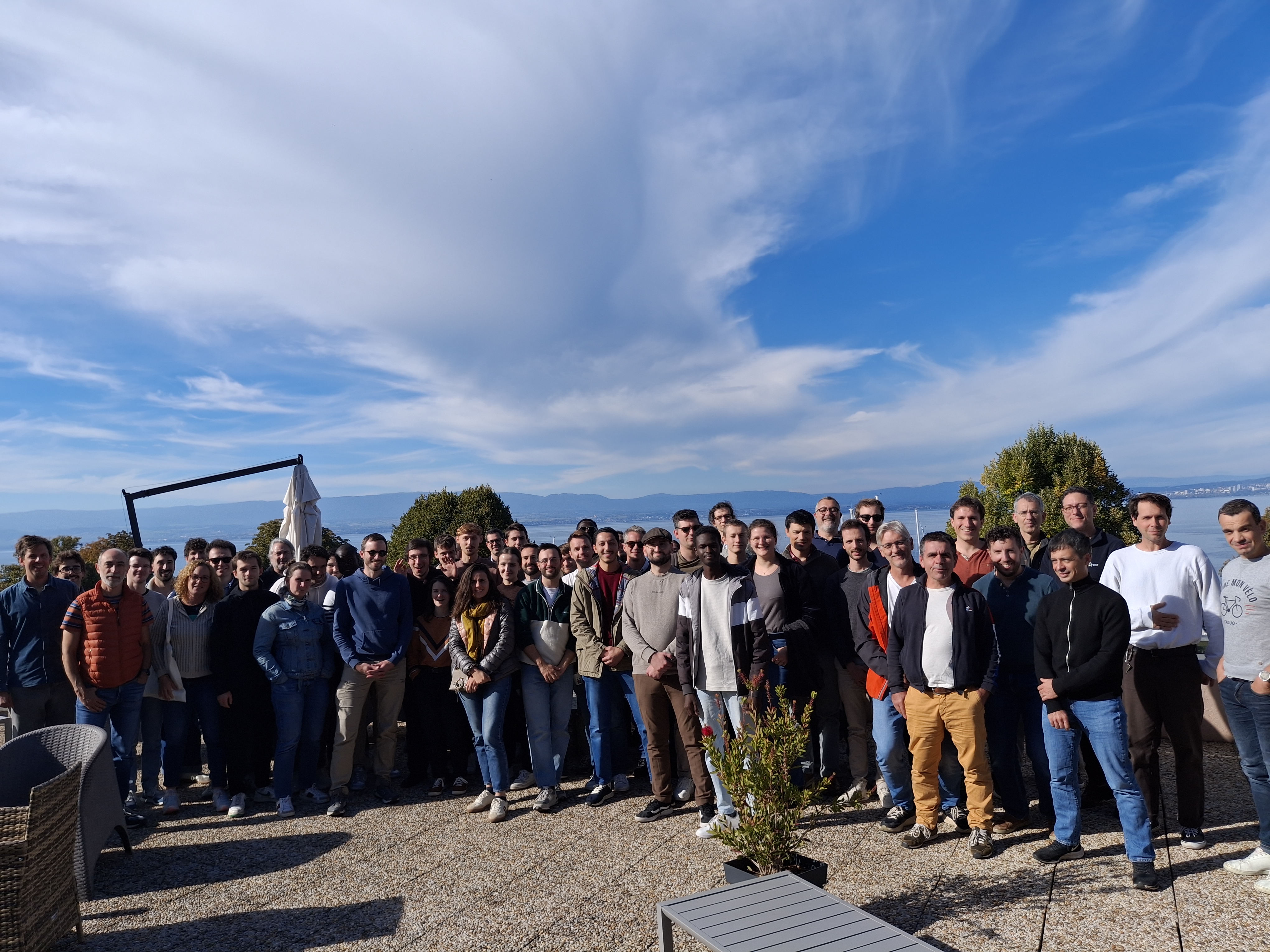
ETICS2024
Dates: 2024, September, 22-27
Location: VVF Saissac, France
Warning: The language of this ETICS edition will be in French - Les cours de cette édition d'ETICS seront dispensés en français
Organizers : Bertrand Iooss (EDF R&D) and Claire Cannamela (CEA/DAM)
Lecturers:
- Prof. Sébastien Da Veiga (ENSAI, France) - Tutorial on conformal prediction, with a discussion for numerical experiments - All the materials
- Prof. Bruno Galerne (Université d'Orléans, France) - Introduction to image generative models - All the materials
- Prof. Pierre L'Ecuyer (Université de Montréal, Canada): Introduction to randomized quasi-Monte Carlo methods in simulation - All the materials
- Talks from PhD students: abstractsphd_etics_2024.pdf
- J. Beh - Importance sampling en grande dimension - ETICS24_BEH.pdf
- T. Constant - Krigeage adaptatif de modèles numériques séquentiels pour l’étude de la fiabilité de systèmes sollicités en fatigue - ETICS24_CONSTANT.pdf
- N. Fellmann- Sensitivity Analysis in Constrained Bayesian Optimization with Uncertainties - ETICS24_FELLMANN.pdf
- E. Jaber - Calage bayésien pour du pronostic hybride, Application à l’étude du colmatage des générateurs de vapeur - ETICS24_JABER.pdf
- S. Janiti Idrissi - On The Calibration of a Two-phase Flow Model under Uncertain Inlet Conditions - ETICS24_JANATI.pdf
- B. Ketema - Analyse de robustesse probabiliste en quantification d’incertitude pour les codes numériques - ETICS24_KETEMA.pdf
- G. Lambert - Quantization-based LHS for dependent inputs, Application to BUVARD-MES and sensitivity analysis - ETICS24_LAMBERT.pdf
- N. Polette - Adaptive Construction for Surrogate-based Inference - ETICS24_POLETTE.pdf
- A. Quintin - Plans d’expériences optimaux sous incertitudes de campagnes d’essais de ténacité - ETICS24_QUINTIN.pdf
- A. Van Biesbroeck - Prior de référence proprement contraint pour une planification d’expériences robuste en support à l’estimation de courbes de fragilité sismique - ETICS24_VANBIESBROECK.pdf
Registration
Registration fees (935€, taxes included, 850€ without taxe) include accommodation, meals and transport by bus from and to Toulouse train station.
Registration is closed because the maximal number of participants has been reached. - Contact Bertrand Iooss to be on the waiting list
Abstracts
- Prof. Sébastien Da Veiga (ENSAI, France): Tutorial on conformal prediction, with a discussion for numerical experiments - Conformal prediction has emerged recently as a promising and popular framework for producing confidence intervals around predictions with no assumptions on the data distribution and without relying on asymptotics on the number of observations. In this tutorial we will start by introducing the basics of conformal prediction, and discuss the numerous extensions that have been proposed to widen its practical applicability (for time-series, when there is distribution-shift, for several machine learning models, and so on) and computability. In the end, we will also discuss extensively open questions related to how it can be applied or not in the field of numerical experiments. The tutorial will also contain several practical sessions in R and Python.
- Prof. Bruno Galerne (Université d'Orléans, France): Introduction to image generative models - The goal of this course is to present and study generative models that can be used for various image generation tasks. The first part of the course will quickly review established generative models such as Generative Adversarial Networks (GAN) and Variational Auto-Encoders (VAE). The remainder of the course will be dedicated to the study of a new contender in generative modeling called diffusion models or Score-Based Generative Models. We will study the mathematical aspects (Time reversal of stochastic processes, …) and practical aspects of these algorithms. Applications of these models for conditional image generation and imaging inverse problems will be discussed.
- Prof. Pierre L'Ecuyer (Université de Montréal, Canada): Introduction to randomized quasi-Monte Carlo methods in simulation - Randomized quasi-Monte Carlo (RQMC) provides unbiased estimators whose variance converges at a faster rate than standard Monte Carlo when estimating an integral, under appropriate conditions. Variants of RQMC have been designed recently for the simulation of Markov chains, for function approximation and optimization, for density estimation, for solving partial differential equations, etc. In this tutorial, we will review the basic principles and main results on RQMC, discuss their practical aspects, and give numerical illustrations showing that they can reduce the variance by huge factors. We will look at how RQMC point sets are constructed, how we measure their uniformity, why they can work even for high-dimensional integrals, and how can they work when simulating Markov chains over a large number of steps. We will show how these methods can be applied in practice by using a Java software library that supports RQMC. The participants will be able to try it on some test cases. Practical works with the SSJ library (in Java); doc for RQMC
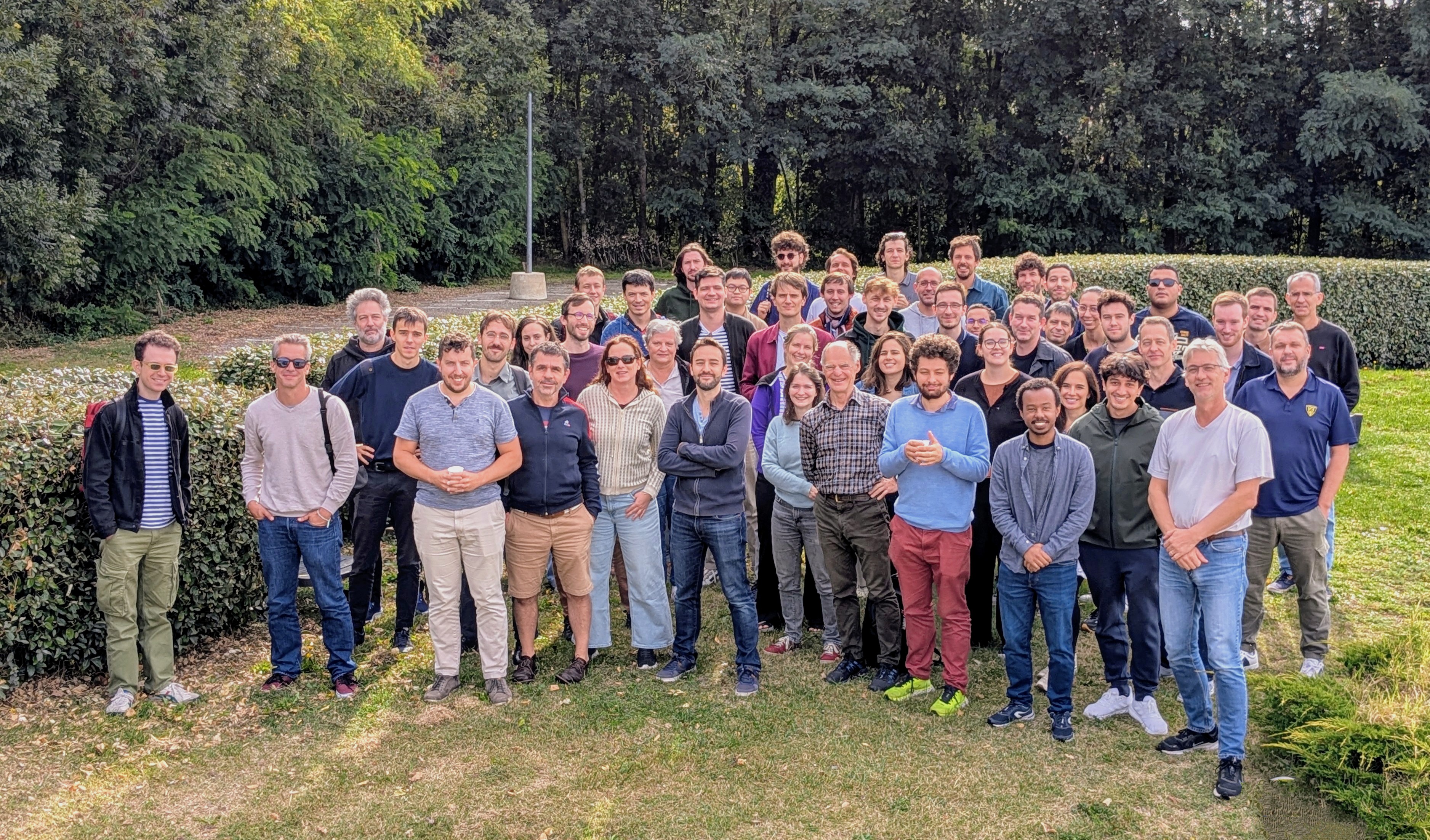
ETICS2023
Dates: 2023, October, 8th-13th
Location: VVF Lège Cap Ferret, France
Warning: The language of this ETICS edition will be in French - Les cours de cette édition d'ETICS seront dispensés en français
Organizers : Bertrand Iooss (EDF R&D) and Claire Cannamela (CEA/DAM)
Lecturers:
- Prof. Pierre Barbillon (AgroParisTech): Calibration of deterministic and stochastic computer models - slides & TPs in R (required R packages: - readxl (on CRAN) - ggplot2 (on CRAN) - RobustCalibration (on CRAN) - DiceDesign (on CRAN) - CaliCo (on https://github.com/Demiperimetre/CaliCo)
- Prof. Sébastien Le Digabel (Polytechnique Montréal): Black-box optimization - slides 1 - slides 2 - slides 3 - slides 4 - practical works' files in C++ and Python - github link
- Prof. Mathilde Mougeot (ENSIIE and ENS Paris Saclay): Leveraging knowledge to design machine learning despite the lack of data using Transfer Learning and PINNS models - TP PINNs
- Tanguy Appriou: Combination of Optimization-free Kriging Models for High-Dimensional problems - 3slidesappriou_etics2023.pdf
- Oumar Baldé: Bayesian calibration for the quantification of conditional uncertainty of input parameters in chained numerical models - 1slidesbalde_etics2023.pdf
- Adama Barry: Plans d'expériences pour la calibration de codes de calcul - 11slidesbarry_etics2023.pdf
- Raphaël Carpintero Perez: Gaussian process regression for high dimensional graph inputs - 7slidesCARPINTEROPEREZ_etics2023.pdf
- Guillaume Chennetier: Simulation d’événements rares pour des marches aléatoires sur des graphes finis - 8slideschennetier_etics2023.pdf
- Marouane Il Idrissi: Hoeffding-ANOVA decomposition of functions with dependent random inputs - 2slidesilidrissi_etics2023.pdf
- Edgar Jaber: Conformal Prediction for surrogate modelling in the UQ framework - 10slidesjaber_etics2023.pdf
- Baalu Ketema: Optimization on Riemannian Manifolds for Uncertainty Quantification - 5slidesketema_etics2023.pdf
- Boris Kratz: Calibrating a 3D Finite Element Model of Tunnel Boring Machine Excavation Using Monitoring Data Through Bayesian Approaches - 9slideskratz_etics2023.pdf
- Nadège Polette: Field uncertainties estimation through [hyper]parameters sampling using Bayesian inference - 6slidespolette_etics2023.pdf
- Antoine Van Biesbroeck: Reference prior construction for Bayesian inference applied to seismic fragility curve estimation - 4slidesvanbiesbroeck_etics2023.pdf
Registration
Registration is closed because the maximal number of participants has been reached. - Contact Bertrand Iooss to be on the waiting list
Registration fees (935€, taxes included, 850€ without taxe) include accommodation, meals and transport by bus from and to Bordeaux train station.
access to the list of participants
Abstracts
- Prof. Pierre Barbillon (AgroParisTech): Calibration of deterministic and stochastic computer models - We propose an overview of calibration methods for deterministic computer models. The choice of the design of experiments and the validation of computer models will be dealt with. The extension to stochastic simulators will be discussed.
- Prof. Sébastien Le Digabel (Polyetchnique Montréal): Black-box optimization - Derivative-Free Optimization typically occurs in engineering applications, when the function to be optimized, as well as the constraints of the problem, are given by the outputs of a computer simulation seen as a blackbox, possibly expensive to execute and contaminated by noise. In such a context, the derivatives are neither accessible nor calculable, which prevents the application of classical gradient-based methods. This course adopts a practical approach to solve such problems, by going around the different families of methods, as well as the different software available. Specific subjects will also be covered, such as handling of constraints, use of surrogates, discrete variables, multiobjective optimization, etc. The practical course includes manipulation of a solver as well as the modeling of a problem in the blackbox optimization setting.
- Prof. Mathilde Mougeot (ENSIIE and ENS Paris Saclay): Leveraging knowledge to design machine learning despite the lack of data using Transfer Learning and PINNS models - In recent years, considerable progresses have been made in the implementation of decision support procedures based on machine learning methods through the exploitation of very large databases and the use of learning algorithms. In many research or production environments, the available databases are rarely so voluminous and the question arises as to whether in this context it is reasonable to use machine learning methods. The ETICS lessons will introduce transfer learning and hybrid models that use knowledge from related application or from physics to implement efficient models with an economy of data. Several achievements will be presented that successfully use these learning approaches to design machine learning for industrial small data regimes and to develop powerful decision support tools even in cases where the initial data volume is limited. Practical sessions will help to handle such models in python environments. References: -de Mathelin, A., Deheeger, F., Mougeot, M., Vayatis, N. From Theoretical to Practical Transfer Learning: the ADAPT library, Federated and Transfer Learning Springer book. 2023. -Weiss K., Khoshgoftaar, T Wang, D. A survey of transfer learning, Journal of Big data, 2016. -Nguyen, Khoa.T.N, Dairay, T., Meunier, R., Mougeot, M. (2022) Physics-informed neural networks for non-Newtonian fluid thermo-mechanical problems: an application to rubber calendering process, Engineering Applications of Artificial Intelligence, vol. 141. -Raissi, M., Perdikaris, P. Karniadakis, G.E. Physics-informed neural networks: A deep learning framework for solving forward and inverse problems involving nonlinear partial differential equations. Journal of Computational Physics, 2019.
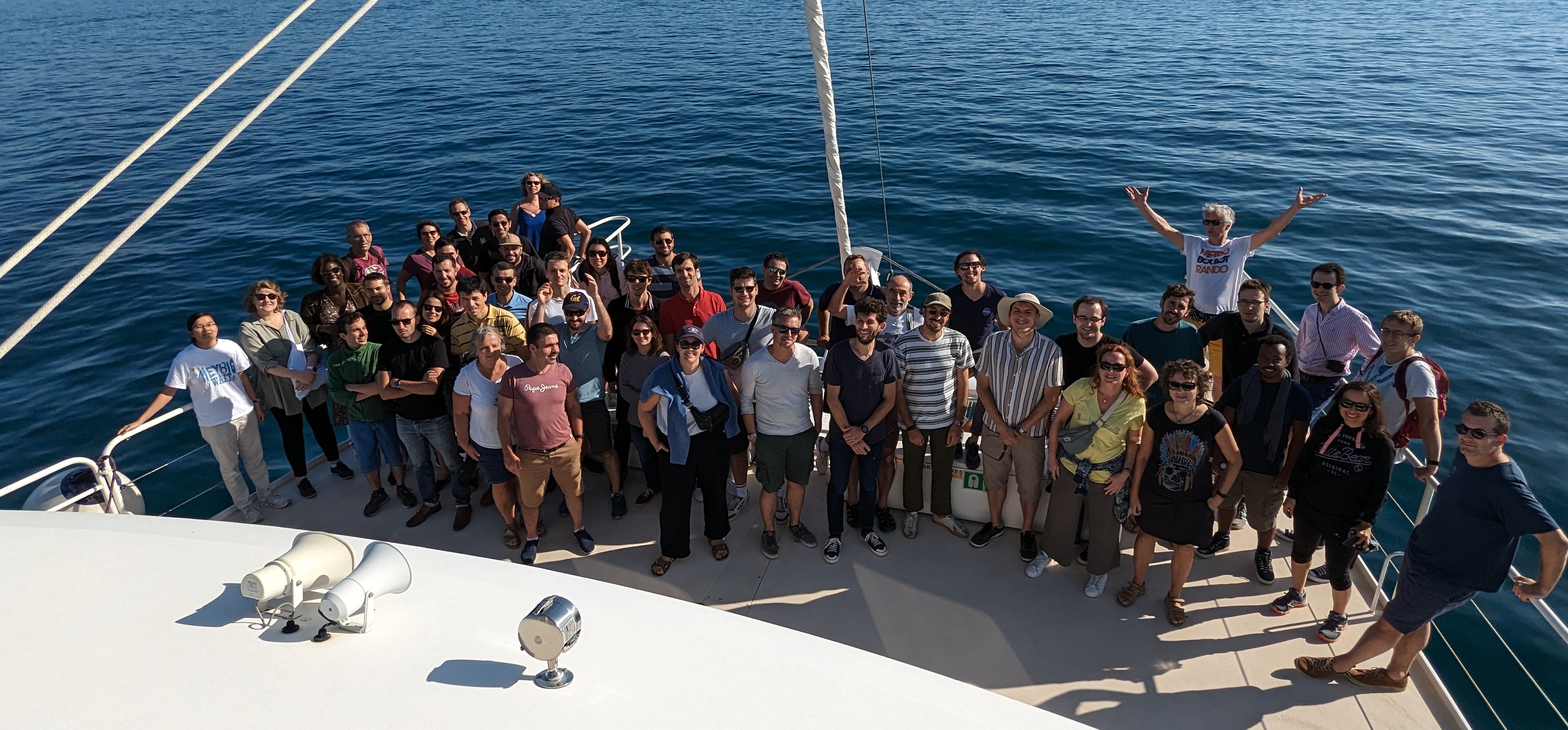
ETICS2022
Dates: 2022, October, 2nd-7th
Location: Belhambra Hotel, Golfe de Lozari (L'Ile Rousse), France
Organizers : Bertrand Iooss (EDF R&D) and Claire Cannamela (CEA/DAM)
Lecturers:
- Anthony Nouy (Ecole Centrale de Nantes): High-dimensional approximation - part 1 - part 2 - part 3
- Gabriel Peyré (CNRS and Ecole Normale Supérieure): Computational Optimal Transport - link - Course notes - Slides 1 - Slides 2 - Python codes (section « Optimal Transport », 5 Jupiter notebooks)
- Danica J. Sutherland (University of British Columbia and Amii): Modern Kernel Methods in Machine Learning - link to the interactive material
- Delphine Sinoquet (IFPEN): - Two applicatins of stepwise uncertainty reduction strategy for excursion set estimation - etics22_sinoquet.pdf
- Clément Gauchy, Estimation of seismic fragility curves by sequential design of experiments (third year PhD) - etics22_gauchy.pdf
- Clément Hardy, Off-the grid learning of sparse mixtures from a continuous disctionary (third year PhD) - etics22_hardy.pdf
- Inês Cardoso, Model Order Reduction and Bayesian Optimization for MDO problems - etics22_cardoso.pdf
- Guillaume Chennetier, Adaptive importance sampling for reliability assessment of a Piecewise Deterministic Markov Process - etics22_chennetier.pdf
- Julien Demange-Chryst, Shapley effect estimation in reliability-oriented sensitivity analysis with dependent inputs by importance sampling - etics22_demange.pdf
- Elias Fekhari, Sequential reliability analysis for offshore wind turbine fatigue Assessment - etics22_fekhari.pdf
- Noé Fellmann, Sensitivity Analysis on excursion sets - etics22_gauchy.pdf
- Marouane Il Idrissi, Robustness assessment using quantile-constrained Wasserstein projections - etics22_ilidrissi.pdf
- Matthéo Saldanha, Using Generative Adversarial Networks to constrain inverse problems resolution - etics22_saldanha.pdf
- Babacar Sow, Gaussian processes indexed by clouds of points: a study - etics22_sow.pdf
- Charles Surget, Sensitivity to statistical estimation uncertainties and probabilistic model identification - etics22_surget.pdf
- Olivier Truffinet, Exploration and compression of homogeneized cross-sections by the EIM method - etics22_truffinet.pdf
Registration
Pre-registration for ETICS2022
The registration is closed because the maximal number of participants have been reached.
Abstracts
- Anthony Nouy (Ecole Centrale de Nantes): High-dimensional approximation, tensor networks and beyond - The approximation of high-dimensional functions is a typical task in computational science. Examples of such problems can be found in physics, machine learning and uncertainty quantification. These tasks require the introduction of suitable approximation tools (or model classes) that are able to exploit some specific structures of functions. In this course, we will first introduce some concepts from approximation theory and information based complexity to quantify the best we can expect when we try to approximate functions from some function class using linear or nonlinear approximation tools, and using different types of information. Then we will review some classical high-dimensional approximation tools, including sparse approximation, dimension reduction methods, tensors and neural networks. We will finally focus on tree tensor networks, provide theoretical results in approximation and learning, and present some algorithms for solving approximation or learning tasks using these model classes.
- Gabriel Peyré (CNRS and Ecole Normale Supérieure): Computational Optimal Transport - Optimal transport (OT) is a fundamental mathematical theory at the interface between optimization, partial differential equations and probability. It has recently emerged as an important tool to tackle a surprisingly large range of problems in data sciences, such as shape registration in medical imaging, structured prediction problems in supervised learning and training deep generatsie networks. This course will interleave the description of the mathematical theory with the recent developments of scalable numerical solvers. This will highlight the importance of recent advances in regularized approaches for OT which allow one to tackle high dimensional learning problems. Material for the course (including a small book, slides and computational resources) can be found online at this link.
- Danica J. Sutherland (University of British Columbia and Amii): Modern Kernel Methods in Machine Learning - Kernel methods were previously the dominant paradigm of machine learning, but have somewhat fallen out of favor with the advent of deep learning. This course will demonstrate how insights from kernel methods can still be beneficial in modern deep learning settings, assuming no prior knowledge of kernels. We will begin with basic formulations of kernel spaces and learning with kernels, including their core theoretical justifications, and with a particular focus on kernel mean embeddings of distributions for various applications. We will then discuss the end-to-end learning of kernels within a deep learning framework, including when we expect this to be useful, with practical examples worked out in interactive sessions.
- PhD students' abstracts: etics22_phdabstracts.pdf
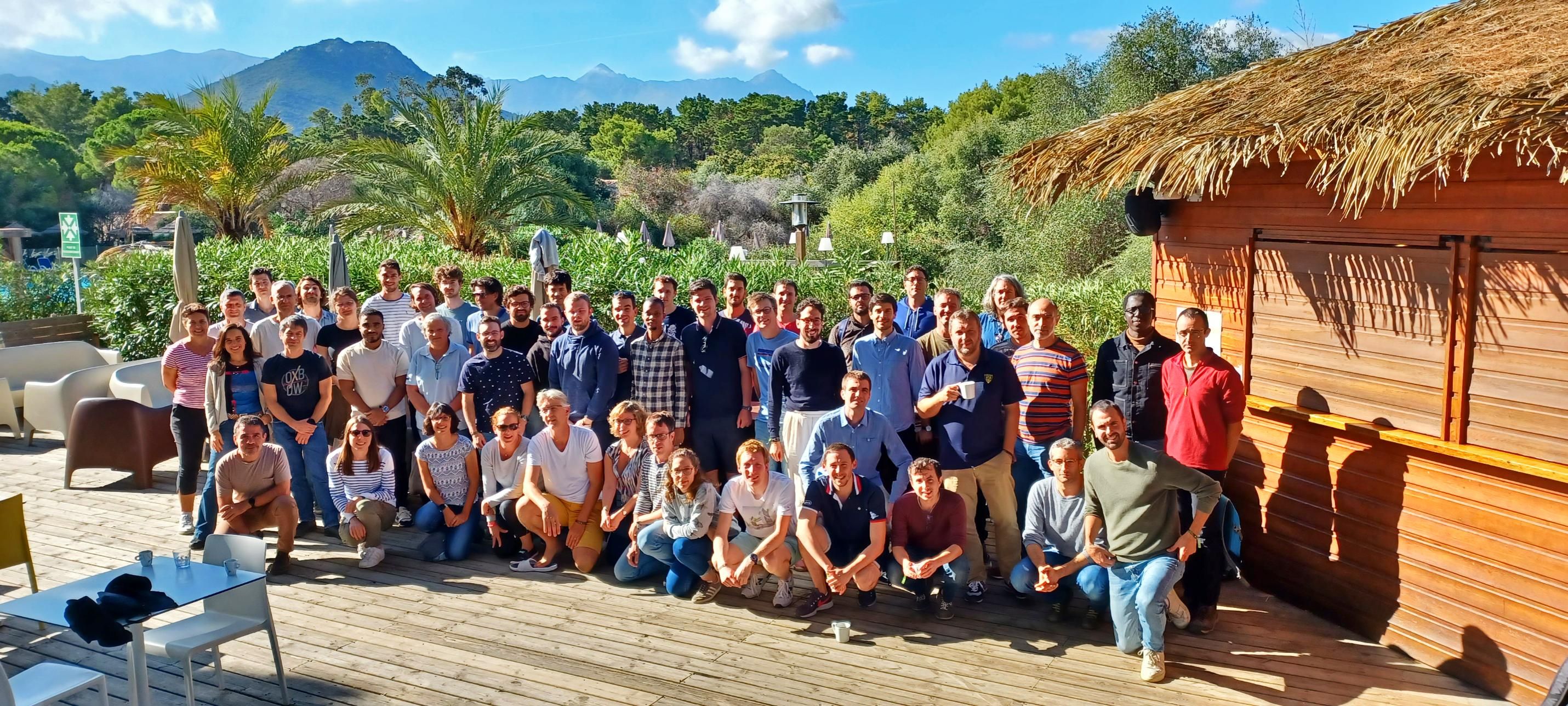
ETICS2021
Dates: 2021, September, 12th - 17th
Location: Keravel resort, Erdeven, France - link
Organizers : Bertrand Iooss (EDF R&D) and Claire Cannamela (CEA/DAM)
Lecturers:
- Prof. Bertrand Michel (Ecole Centrale de Nantes): Topological data analysis - link
- Prof. Chris Oates (Newcastle University): Minimum Discrepancy Methods in Uncertainty Quantification - lecture notes
- Prof. Clementine Prieur (Université Grenoble Alpes): Recent advances in global sensitivity analysis - parti_prieur_etics_2021.pdf - partii_prieur_etics_2021.pdf
- Sébastien Da Veiga (SfranTech) - Kernel-based ANOVA decomposition and Shapley effects - etics2021_daveiga.pdf
- Baptiste Kerleguer (CEA/DAM, 3rd year PhD student): Multi-fidelity surrogate modeling combining Bayesian neural network and Gaussian process regression - etics2021_kerleguer.pdf
- Clément Gauchy (CEA/DES, 2nd year PhD student): Propagation of epistemic uncertainties and global sensitivity analysis in seismic risk assessment - etics2021_gauchy.pdf
- Guillaume Chennetier (EDF R&D, 1st year): Rare event simulation for piecewise deterministic Markov processes - etics2021_chennetier.pdf
- Clément Duhamel (INRIA, 1st year PhD student): A SUR version of the Bichon criterion for excursion set estimation - etics2021_duhamel.pdf
- Elias Fekhari (EDF R&D, 1st year PhD student): Treatment of uncertainties in multi-physics model for wind turbine asset management - etics2021_fekhari.pdf
- Bruno Vuillod (CEA/DAM, 1st year PhD student): Modeling multi-scales thermo-mechanical model - etics2021_vuillod.pdf
- Marouane Il Idrissi (EDF R&D, 1st year PhD student): Cooperative game theory and global sensitivity analysis - etics2021_ilidrissi.pdf
- Isabelle Abraham (CEA/DAM): Maching learning et image : Utilisation du "scattering wavelet transform" sur des radiographies de confinement inertiel - etics2021_abraham.pdf
- Clément Benard (SafranTech, 3rd year PhD student): A sensitivity analysis perspective of random forests - etics2021_benard.pdf
- Cécile Haberstich (CEA/DAM): Optimal designs for discrete least squares approximation - etics2021_haberstich.pdf
- Alejandro Ribes (EDF R&D): Melissa: a modular external library for in-situ sensitivity analysis - etics2021_ribes.pdf
Registration
Registration is open: fill the form below. Registered people will receive the payment detail by email. Registration fees (900€) contain the accommodation, meals, gala dinner, social event cost and transport by bus from and to the railway station (to be precised) to and from Keravel resort (sunday afternoon and friday afternoon). People from CEA/DAM has to precise CEA/DAM for their affiliation.
Registration is closed
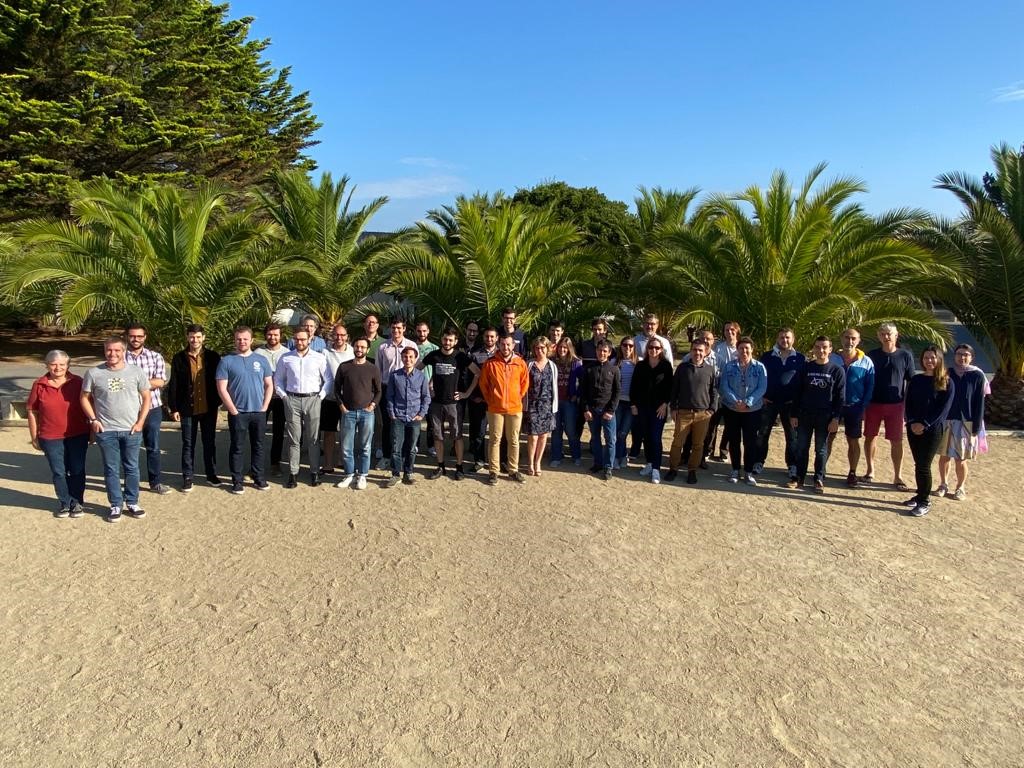
ETICS2020, October, 4-9, Ile d Oléron, France
Organizers : Bertrand Iooss (EDF R&D) and Guillaume Perrin (CEA/DAM)
Location: La Vieille Perrotine, Saint-Pierre-d'Oléron, France - link
Registration is closed
Registration: (900€ including accomodation and meals): French link - English link
Registration is closed
Scientific organizers : Bertrand Iooss (EDF R&D) and Guillaume Perrin (CEA/DAM)
Lecturers:
- Prof. Josselin Garnier (Ecole Polytechnique, France) - Rare event simulation - Slides: etics2020_garnier.pdf - etics2020_garnier2.pdf
- Prof. Anne-Laure Fougères (Université Claude Bernard Lyon 1, France) - Extreme value theory and applications
- Prof. Robert B. Gramacy (Virginia Tech, USA) - Surrogates: Gaussian process modeling, design and optimization for the applied sciences - Part 1: Gaussian processes - lect2_gp.doc (change the file extension .doc to .html) - Part 2: Optimization - lect3_optim.doc (change the file extension .doc to .html) - R files for practical works: r-gramacy.zip
- Baptiste Kerleguer (CEA) : Multi-fidelity modeling for time-series output - etics2020_kerleguer.pdf
- Vincent Chabridon (EDF R&D) : Epistemic uncertainty management in uncertainty quantification etics2020_chabridon.pdf
- Bertrand Iooss (EDF R&D) : Perturbed-law based sensitivity indices : motivations, methodology and industrial application etics2020_iooss_pli.pdf
- Guillaume Perrin (CEA) : Isoprobabilist transform for robust uncertainty analyses etics2020_perrin.pdf - notebook-etics2020-tprobustanalysis.doc (change the file extension .doc to .ipynb)
- Clément Gauchy (CEA) and J. Stenger (EDF R&D) : Optimal Fisher-based perturbed-law indices - etics2020_gauchy.pdf
- Jérôme Breil, Lucas Tallois (CEA) : Optimisation d'un diaphragme hydraulique
- Sanaa Zannane (EDF R&D) : Optimisation coûteuse boîte noire à variables mixtes. Revue bibliographique - etics2020_zannane.pdf
- Rodolphe Le Riche (CNRS) : Dimension reduction ofr Bayesian optimization - slides
- Sébastien Da Veiga (SafranTech) and Amandine Marrel (CEA) : Gaussian process regression with linear inequality constraints – An adaptive strategy - etics2020_daveiga.pdf
- Gaêl Poette (CEA) : A new MC scheme for the resolution of intrusive-gPC based reduced models for the uncertain linearBoltzmann equation - etics2020_poette.pdf
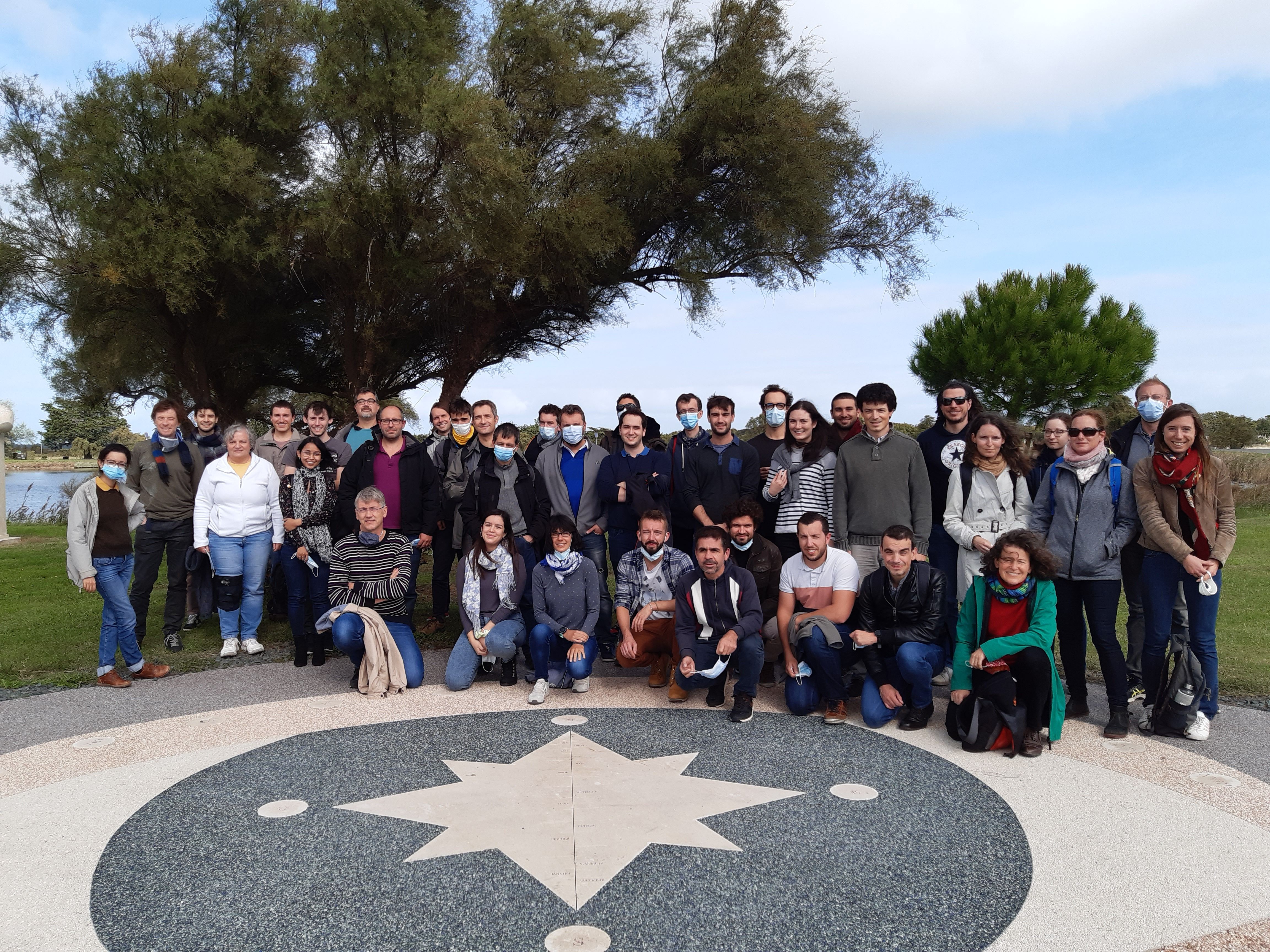
ETICS2019, September, 22-27, Fréjus, France
Organizers : Bertrand Iooss (EDF R&D) and Guillaume Perrin (CEA/DAM)
Location: La Villa Clytia, Fréjus, France - link
Registration (900€ including accomodation and meals): link
Scientific organizers : Bertrand Iooss (EDF R&D) and Guillaume Perrin (CEA/DAM)
Lecturers:
- Prof. Aurélien Bellet (INRIA Lille - Nord Europe, France) - Similarity and distance metric learning - etics2019abt.pdf - metric-learn-etics.zip
- Prof. Bernard Bercu (Université de Bordeaux, France) - Asymptotic behavior of stochastic algorithms with statistical applications - L1-Martingales.pdf - L2-Stochalgorithms.pdf - L3-Stats.pdf - TP1-Sample-Frejus.zip - TP2-QSQ-Frejus.zip - TP3-Kernel-Frejus.zip
- Prof. Jean-Michel Marin (Université de Montpellier, France) - Computational methods for Bayesian inference - etics2019jmm-part1.pdf - etics2019jmm-part2.pdf - etics2019jmm-part3.pdf - etics2019jmm-part4.pdf - etics2019jmm-modelin.pdf - etics2019jmm-capture.pdf - etics2019jmm-exos.zip
- Prof. Youssef Marzouk (Massachusetts Institute of Technology, Cambridge, MA, USA) - Transport methods in Bayesian computation - etics-ymarz-part1.pdf - etics-ymarz-part2.pdf
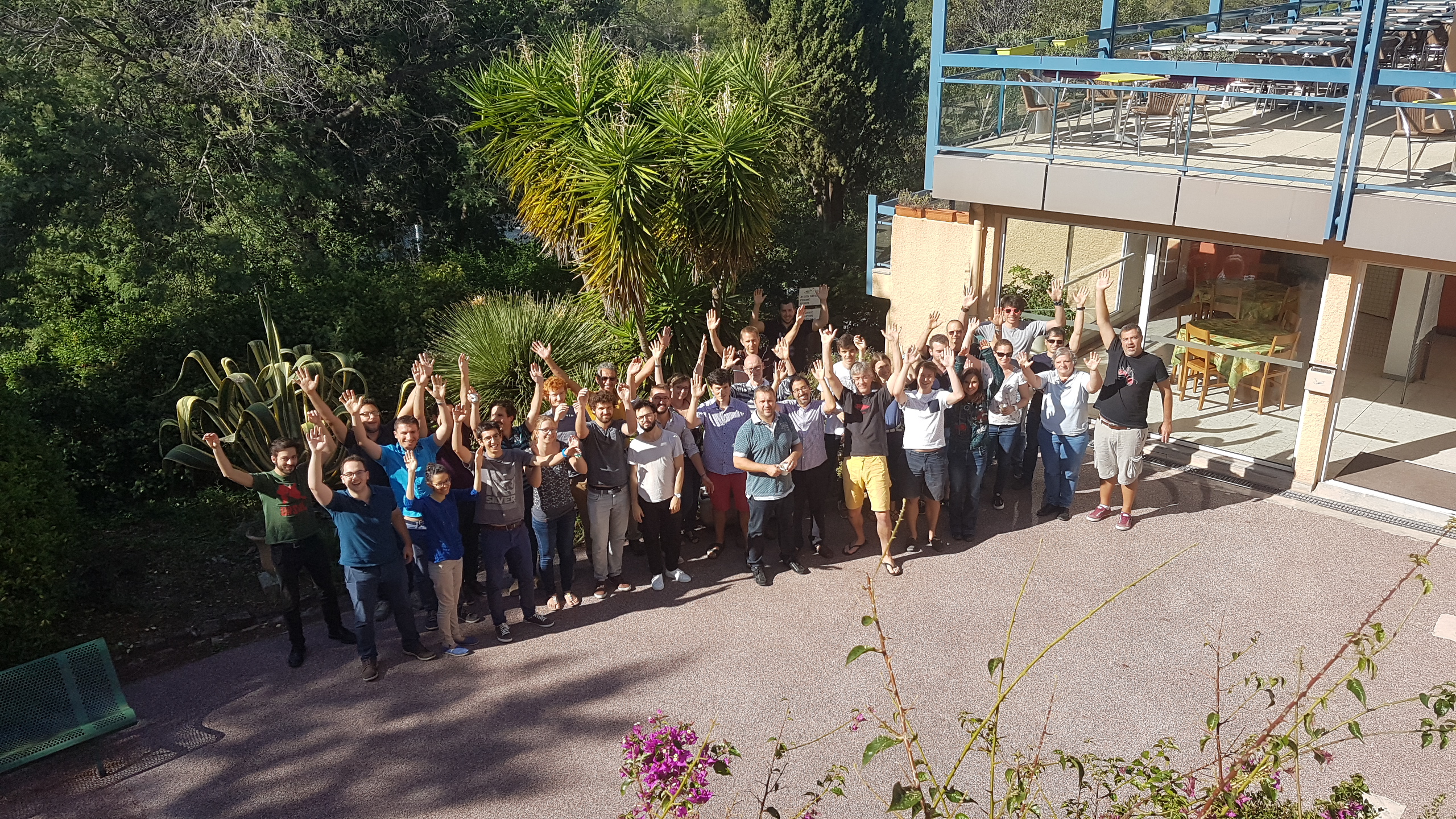
ETICS2018, June, 4-8, Roscoff, France
Organizers : Jean Giorla (CEA/DAM), Bertrand Iooss (EDF R&D) and Guillaume Perrin (CEA/DAM)
Location: Station Biologique Roscoff, Centre UPMC-CNRS - link
Scientific organizers : Bertrand Iooss (EDF R&D), Jean Giorla and Guillaume Perrin (CEA/DAM)
Lecturers:
- Dr Andrei Bursuc (SafranTech, France) - Deep Learning, a journey from feature extraction and engineering to end-to-end pipelines - ETICS2018_bursuc1.pdf - ETICS2018_bursuc2.7z - ETICS2018_bursuc3a.pdf - ETICS2018_bursuc3b.pdf - ETICS2018_bursuc4.7z - ETICS2018_bursuc5.pdf /* ETICS2018_bursuc1aa.pdf - ETICS2018_bursuc1bb.pdf - ETICS2018_bursuc2.pdf - ETICS2018_bursuc3.zip - ETICS2018_bursuc4.zip */
- Dr Nicolas Gayton (Sigma Clermont, france) - Concepts and methods for robust and/or reliable design - ETICS2018_gayton.pdf
- Prof Sankaran Mahadevan (Vanderbilt University, USA) - Recent developments in Uncertainty Aggregation (forward problem) and Uncertainty Reduction (inverse problem) - ETICS2018_mahadevan.pdf
- Dr Fabrizio Ruggeri (CNR, IMATI, Italy) - Introduction to Robust Bayesian Analysis - ETICS2018_ruggieri.pdf
- Dr Merlin Keller and Jérôme Stenger (EDF R&D, France) - Practical session on Robust Inference using the Python Mystic framework for global optimization - 0_prerequis_tp.pdf - 1_OUQ_intro.pdf - 2_case_study_presentation.pdf - 3_Simulated Annealing_Intro.pdf - 4_Differential_Evolution_Intro.pdf - 5_Practical_Session_Presentation.pdf - 6_Fiche_TP.pdf - 1D.zip - 4D_Correction.zip
- Dr Guillaume Perrin (CEA, France) - Guarantee by simulation - ETICS2018_perrin.pdf
- Dr Mathieu Couplet (EDF R&D, France) - Validation of scientific computing tools - ETICS2018_couplet.pdf
/* Registration - Fees = 800€ (including accomodation, meal, participation to the summer school) */
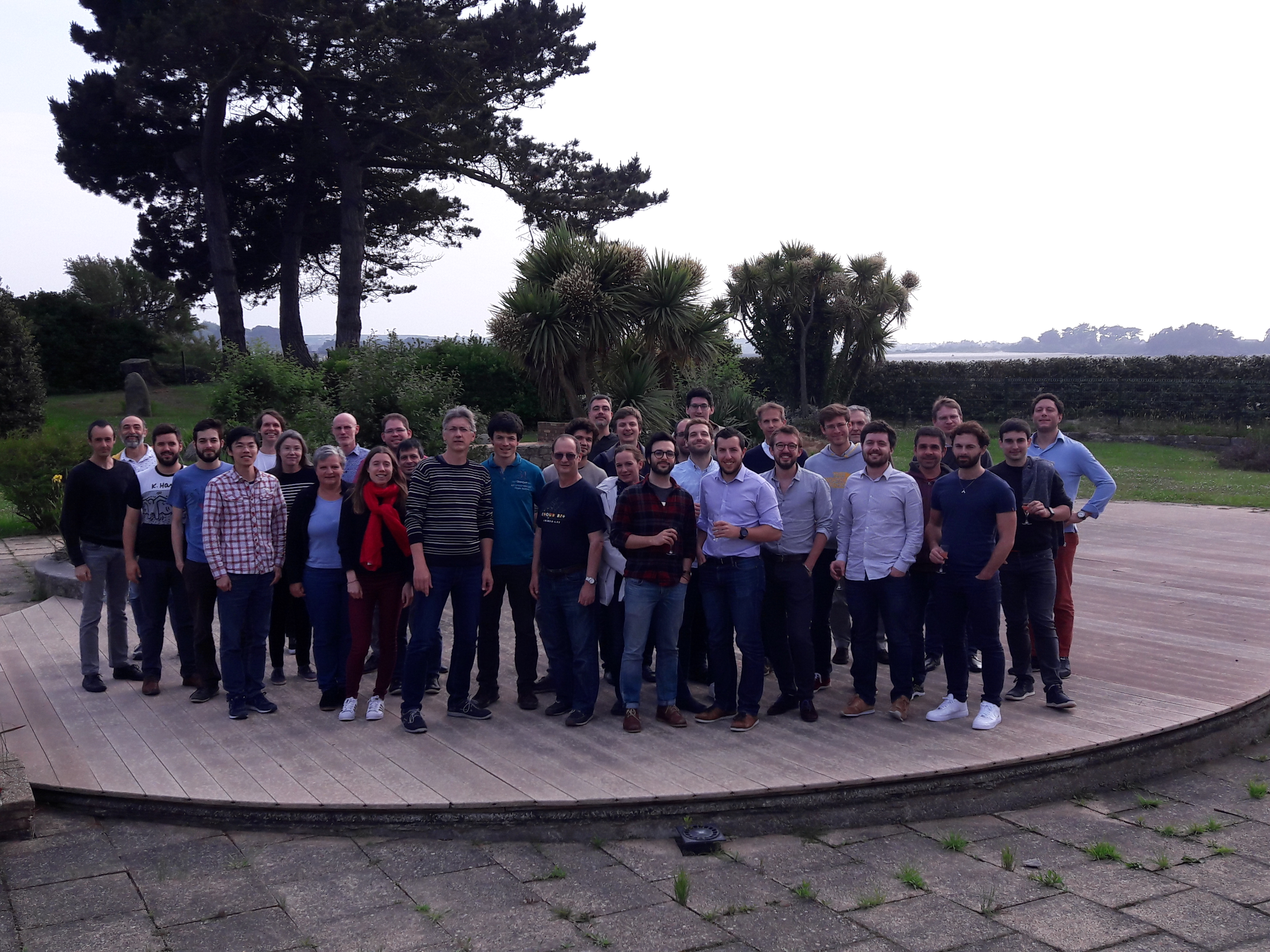
ETICS2017, October, 1-6, Porquerolles, France
Organizers : Bertrand Iooss (EDF R&D) and Jean Giorla (CEA/DAM)
Lecturers:
- Max Gunzburger (Florida State University, USA): Multifidelity approaches to UQ and Optimal Multilevel Multifidelity Monte Carlo methods - etics2017_gunzburger.pdf
- Luc Pronzato (CNRS - Sophia Antipolis, Nice, France): Optimal Design of Experiments - etics2017_pronzato1.pdf - etics2017_pronzato2.pdf - etics2017_pronzato3.pdf
- Pierre-Henri Wuillemin (Université Pierre et Marie Curie, Paris, France): Applications of probabilistic graphical models - etics2017_wuillemin.pdf
- Sébastien Destercke (Université de Technologie de Compiègne, France): Imprecise probabilities: why, when, how? - etics2017_destercke.pdf
- Nicolas Bousquet (EDF R&D, Chatou, France): Stochastic prior modelling for uncertain inputs - etics2017_bousquet.pdf
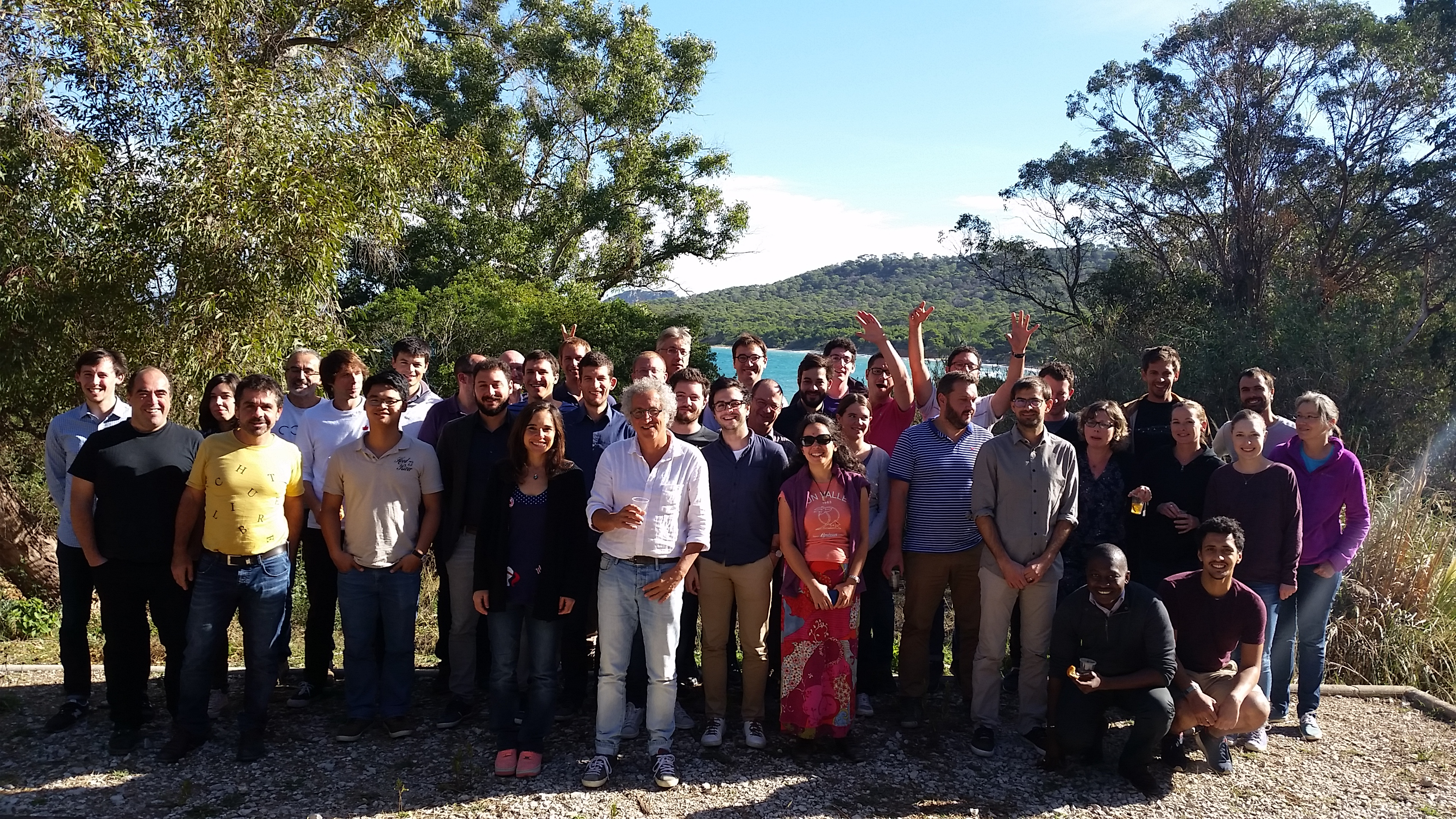
ETICS2016, June, 6-10, Barcelonette, France
Scientific organizers : Bertrand Iooss (EDF R&D) and Jean Giorla (CEA/DAM)
Lecturers:
- François Bachoc (Université Paul Sabatier): Calibration of computer experiments
- Sébastien Da Veiga (SafranTech): Advanced methods in sensitivity analysis
- Stéphane Gaïffas (Ecole Polytechnique): Methods for covariance matrix estimation -
- Tim Sullivan (Free University of Berlin / Zuse Institute Berlin): Optimal distributionally robust uncertainty quantification
